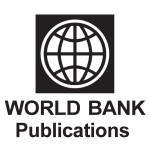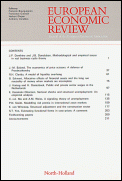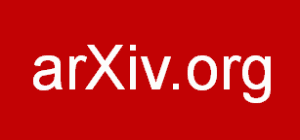Posted: May 16th, 2012 | Author: Olaf Siegert | Filed under: Newspost | Tags: Economics, Open Access, Publishing Reform | 1 Comment »
A recent ZBW survey among German economists shows that they sympathize with the Elsevier boycott and Open Access, but still support the established reputation and ranking systems
Right now scientists from around the world are boycotting the Elsevier publishing house. The dominant magazine publisher stands accused of monopolizing scientific content by only making it accessible to the public for astronomical subscription prices. In contrast to this, the Open Access community requests that all publicly financed research findings should be made accessible for free. In early May, the ZBW held a survey regarding the current Elsevier boycott and the subject of Open Access which found that the established system of expensive subscription magazines is indeed unpopular, but is largely upheld because of a shortage of alternatives.
Read the full press release here
Posted: May 8th, 2012 | Author: Ralf Flohr | Filed under: Monthly Report | Comments Off on EconStor in April 2012: now among the TOP 15 RePEc Archives
We are pleased to announce that EconStor is now among the TOP 15 largest contributors to the RePEc database processing more than 13000 title data from 195 series and over 90 institutions. With more than 1.2 million records contributed from over 1400 archives in the world RePEc – Research Papers in Economics is one of the most comprehensive databases for economic research. Starting in 2006 EconStor has developed a close collaboration with RePEc. In 2010 we have established a national input service for German institutions by disseminating title data for entire series and journals into the RePEc network.
New content: In April 2012 we have been able to upload the following working and discussion paper series in EconStor:
- The Constitutional Economics Network Working Papers, Department of Economic Policy and Constitutional Economic Theory, University of Freiburg
- Discussion Papers, Research Professorship Demographic Development, Social Change, and Social Capital, WZB Berlin
- Discussion Papers, Research Group Globalization, Work, and Production, WZB Berlin
- Reutlinger Diskussionsbeiträge zu Marketing & Management, ESB Business School, Reutlingen University
- Forschung Aktuell, Institut Arbeit und Technik (IAT), Westfälische Hochschule, University of Applied Sciences
1205 publications have been newly uploaded in EconStor and we have increased our total amount of full-text documents up to 38500. The total number of downloads in April climbed to 105700. The Top 5 most downloaded papers were:
1.) Yadav, Pradeep K.; Megginson, William L.; Chakrabarti, Rajesh: „Corporate governance in India“ (1282 downloads)
2.) Pon, Bryan; Kenney, Martin: „Structuring the smartphone industry: Is the mobile internet OS platform the key?“ (749)
3.) Hauser, Ulrike; Lorenz, Bettina: „Herstellermarke vs. Handelsmarke“ (707)
4.) Auria, Laura; Moro, Rouslan A.: „Support Vector Machines (SVM) as a technique for solvency analysis“ (510)
5.) Gottschalk, Jan: „An Introduction into the SVAR Methodology: Identification, Interpretation and Limitations of SVAR models“ (375)
Posted: April 23rd, 2012 | Author: Olaf Siegert | Filed under: Newspost | Tags: Embargo period, Open Access, Publishing Reform, Research funders, researchers, Survey | 1 Comment »
The EU recently released the results of the survey “scientific information in the digital age”. They are based on 1140 responses from Member states, coming from research funding organisations, university/research institutes, libraries, publishers, international organisations and individual researchers.
The survey focused on the three topics “scientific publications”, “research data” and “Preservation of digital scientific information”. Concerning scientific publications the answers were:
- 84% see access problems to scientific publications in Europe
- The main reasons are seen in high prices of journals/subscriptions (89 %) and limited library budgets (85 %)
- 91% agree that Open Access increases the dissemination of scientific publications
- 90% support the idea that publications resulting from publicly funded research should be avaliable in open access
- 56% see six months as a desirable embargo period for licensed material, before it has to be available in open access
- 86% agree on the development of an EU network of repositories
Posted: April 16th, 2012 | Author: Olaf Siegert | Filed under: Newspost | Tags: Economics, Economists Online, Open Access, RePEc, Repository, SSRN | Comments Off on The World Bank starts its own Open Access repository
More than 2,000 books, articles, reports and research papers available
 The World Bank last week launched its Open Knowledge Repository, which is a one-stop-shop for most of the Bank’s research outputs and knowledge products, providing free and unrestricted access. Additional material, including foreign language editions and links to datasets, will be added in the coming year.
The World Bank last week launched its Open Knowledge Repository, which is a one-stop-shop for most of the Bank’s research outputs and knowledge products, providing free and unrestricted access. Additional material, including foreign language editions and links to datasets, will be added in the coming year.
The repository uses a dissemation strategy similar to Econstor, which means that their publications are also visible in
“major international repositories (and databases) such as RePEc (Research Papers in Economics), SSRN and Economists Online. This means that the World Bank publishes just once in its own Open Knowledge Repository while its research is also “harvested” and made openly available through many other searchable online repositories, increasing the number of people able to find World Bank content.”
On top of that, the World Bank also tries to negotiate an Open Access friendly environment for future publications of their researchers:
“The Bank is working with journal publishers to determine fair embargo periods after which peer-reviewed journal articles, as accepted for publication, will be added to the repository. The working paper versions of journal articles are available in the Open Knowledge Repository under a Creative Commons attribution-only (CC BY) license without any embargo period.
World Bank Publisher Carlos Rossel expects embargo periods on journal articles to shorten as more organizations opt for open access and the academic publishing industry adapts to the Internet age. “The changes have been tremendous already, but I think there is a groundswell that is saying that frankly part of the value added by journal publishers can be accomplished through other means, and really what’s most important is for our knowledge to be readily accessible,” he said.”
Read the full press release here
Posted: April 4th, 2012 | Author: Jan B. Weiland | Filed under: Monthly Report | Comments Off on EconStor in March 2012
This month we are able to report one journal, two book series and five working paper series being added to EconStor:
- Journal of Entrepreneurial Finance, Academy of Entrepreneurial Finance (AEF), Montrose, CA
- Ilmenauer Schriften zur Betriebswirtschaftslehre, Technische Universität Ilmenau
- Series of the Chair Construction Economics / Schriftenreihe der Professur Betriebswirtschaftslehre im Bauwesen, Faculty of Civil Engineering, Bauhaus-Universität Weimar
- SOEPpapers on Multidisciplinary Panel Data Research, DIW Berlin
- Data Documentation, DIW Berlin
- Working Papers, Institut für Genossenschaftswesen, University of Münster
- SSE/EFI Working Paper Series in Economics and Finance, Stockholm School of Economics
- HAW im Dialog – Weidener Diskussionspapiere, University of Applied Sciences Amberg-Weiden (HAW)
With nealy 750 new publications in March we have increased our total amount of full-text documents up to 37,250 – by counting almost the same number of pdf downloads as last month: 96,418. The Top 5 most downloaded papers were:
- Yadav, Pradeep K.; Megginson, William L.; Chakrabarti, Rajesh: „Corporate governance in India“ (1497 downloads)
- Pon, Bryan; Kenney, Martin: „Structuring the smartphone industry: Is the mobile internet OS platform the key?“ (540)
- Hauser, Ulrike; Lorenz, Bettina: „Herstellermarke vs. Handelsmarke“ (520)
- Bouza, Carlos; Juárez, Octaviano; Santiago, Agustín: „Un estudio de las potencialidades del mercado para el consumo de agua purificada de la fuente de Azinyahualco“ (473)
- Auria, Laura; Moro, Rouslan A.: „Support Vector Machines (SVM) as a technique for solvency analysis“ (435)
Posted: March 23rd, 2012 | Author: Olaf Siegert | Filed under: Newspost | Tags: Author Fees, journals, Peer Review | Comments Off on Behind the scenes of the European Economic Review
 One of the recent additions to the EconStor collection was a working paper from CESifo called “A Decade of Editing the European Economic Review”. In this paper the authors describe their experiences as editors and also present some interesting insights.
One of the recent additions to the EconStor collection was a working paper from CESifo called “A Decade of Editing the European Economic Review”. In this paper the authors describe their experiences as editors and also present some interesting insights.
As one the leading journals in Economics, the European Economic Review (EER) currently receives about 550 submissions per year, about 200 more than ten years ago. As the peer review duties are still mainly voluntary work, this implies long delays before a paper is published:
“Long delays between the submission of a paper and the time when an author receives an editorial decision are a problem in today’s culture of economics journals. From the start, we tried to work against this problem with various measures. One of the first we took was to introduce turbo rejects, i.e., rejections of papers without giving them to reviewers. The idea was to return to the authors immediately papers that we as editors thought had very small chances of making it through the reviewing process successfully (…)
With regard to the number of submissions, the increase from around 350 to 550 per year with a steady number of Associate Editors implied that we had to assume the role of AE’s on an increasingly bigger number of manuscripts. This meant identifying referees ourselves for a bigger share of submitted papers. Finally, in spite of incentives offered for timely reports, we encountered great difficulties with some reviewers. It was not uncommon for the editorial office to find it necessary to send second and third reminders to reviewers who promised reports but never delivered. “
Another interesting fact is the submission fee (currently 125 €) charged from the authors, even when the paper is rejected. While author fees are quite common with Open Access Journals, it seems surprising for subscription-based like the EER, where the annual (institutional) subscription price for the journal is almost 2000 € per year.
Posted: March 13th, 2012 | Author: Olaf Siegert | Filed under: Newspost | Tags: Economics, Open Access, Research funders | 2 Comments »
 The UK’s Research Councils (RCUK), who spend about 3 billion Euro per year for research funding, have proposed a revised policy on Open Access which further clarifies their definition of Open Access and strengthens some of the criteria that must be satisfied.
The UK’s Research Councils (RCUK), who spend about 3 billion Euro per year for research funding, have proposed a revised policy on Open Access which further clarifies their definition of Open Access and strengthens some of the criteria that must be satisfied.
In particular, the policy permits an embargo of not longer than 12 months in Arts and Humanities or Social Sciences (incl. Economics) and 6 months in all other disciplines, until peer reviewed research papers must be made freely available. This means for example, that researchers in Economics, who are funded by the ESRC (Economic and Social Research Council), are required to publish their research results in an Open Access version no longer than 1 year after the original publication.
The new policy of the RCUK also mentions author fees for publishing directly in Open Access Journals:
Where publishing costs are incurred during the lifetime of the grant, Directly Incurred
costs may be used to fund this expenditure. Researchers are recommended, where
applicable, to request funding to cover such costs in their grant applications.
Where publishing costs are incurred after the lifetime of the grant, Indirect Costs may
be used to fund this expenditure. Research Organisations should ensure that these
publishing costs are fully incorporated into their costing models.
Where Research Council funds are used to pay Open Access fees for a paper, the
paper must be made Open Access immediately at the time of on-line publication,
notwithstanding that this may take place before the date of publication of the same
paper in a print/hard copy edition.
Posted: March 6th, 2012 | Author: Jan B. Weiland | Filed under: Monthly Report | Comments Off on EconStor in February 2012
In February 2012 we have added about 1,000 papers to EconStor, including these new working paper and book series:
- Edition HWWI, Hamburg Institute of International Economics (HWWI)
- Working Papers, Institute for Technology and Innovation Management, Hamburg University of Technology (TUHH)
- Papers and Preprints of the Department of Innovation Research and Sustainable Resource Management, Chemnitz University of Technology
- Discourses in Social Market Economy, OrdnungsPolitisches Portal (OPO)
- Working Papers, Institute of Finance, University of Braunschweig – Institute of Technology
- Passau Discussion Papers (Economics Series), Faculty of Business and Economics, University of Passau
- Working Paper Series, School of Economics and Finance, Queen Mary, University of London
The 36,500 full texts from EconStor have been downloaded 96,621 times in the last month. The Top 5 most downloaded papers in February were:
- Yadav, Pradeep K.; Megginson, William L.; Chakrabarti, Rajesh: „Corporate governance in India“ (1322 downloads)
- Bouza, Carlos; Juárez, Octaviano; Santiago, Agustín: „Un estudio de las potencialidades del mercado para el consumo de agua purificada de la fuente de Azinyahualco“ (1185)
- Bauer, Thomas K.: „High Performance Workplace Practices and Job Satisfaction: Evidence from Europe“ (850)
- Pon, Bryan; Kenney, Martin: „Structuring the smartphone industry: Is the mobile internet OS platform the key?“ (620)
- Gottschalk, Jan: „An Introduction into the SVAR Methodology: Identification, Interpretation and Limitations of SVAR models“ (464)
Posted: February 27th, 2012 | Author: Olaf Siegert | Filed under: Newspost | Tags: Business Models, Open Access, Publishing Reform | Comments Off on Elsevier responds to critics with policy change
Publisher withdraws support for the Research Works Act
Elsevier today published a press release, where they state their withdrawal for the Research Works Act. The publisher had initially supported this act, which proposes legislation that would prevent the US government from mandating Open Access to taxpayer-funded research.
In it’s press release Elsevier also states that
(…) while withdrawing support for the Research Works Act, we will continue to join with those many other nonprofit and commercial publishers and scholarly societies that oppose repeated efforts to extend mandates through legislation.
Even though the press release marks not a complete U-turn of Elsevier’s policy towards Open Access, it still seems as a sign, that the protest in the research community against the publishers business practices has already shown some impact.
Posted: February 14th, 2012 | Author: Olaf Siegert | Filed under: Monthly Report | Tags: citation analysis, Downloads, Impact, Social media, Twitter | 3 Comments »
New study finds strong correlation between the relationship between Twitter mentions and both article downloads and article citations
 A new study by Xin Shuai, Alberto Pepe and Johan Bollen analyzes the online response of the scientific community to the preprint publication of scholarly articles. Based on a cohort of 4,606 scientific articles submitted to the preprint database arXiv.org between October 2010 and April 2011 they study three forms of reactions to these preprints: how they are downloaded on the arXiv.org site, how they are mentioned on the social media site Twitter, and how they are cited in the scholarly record.
A new study by Xin Shuai, Alberto Pepe and Johan Bollen analyzes the online response of the scientific community to the preprint publication of scholarly articles. Based on a cohort of 4,606 scientific articles submitted to the preprint database arXiv.org between October 2010 and April 2011 they study three forms of reactions to these preprints: how they are downloaded on the arXiv.org site, how they are mentioned on the social media site Twitter, and how they are cited in the scholarly record.
 They find that Twitter mentions follow rapidly after article submission and that they are correlated with later article downloads and later article citations, indicating that social media may be an important factor in determining the scientific impact of an article.
They find that Twitter mentions follow rapidly after article submission and that they are correlated with later article downloads and later article citations, indicating that social media may be an important factor in determining the scientific impact of an article.
This fits very well with a study from 2011, where David McKenzie and Berk Özler analyze the Impact of Economics Blogs They found out, that “links from blogs cause a striking increase in the number of abstract views and downloads of economics papers.”



 A new
A new  They find that Twitter mentions follow rapidly after article submission and that they are correlated with later article downloads and later article citations, indicating that social media may be an important factor in determining the scientific impact of an article.
They find that Twitter mentions follow rapidly after article submission and that they are correlated with later article downloads and later article citations, indicating that social media may be an important factor in determining the scientific impact of an article. Subscribe to RSS
Subscribe to RSS


